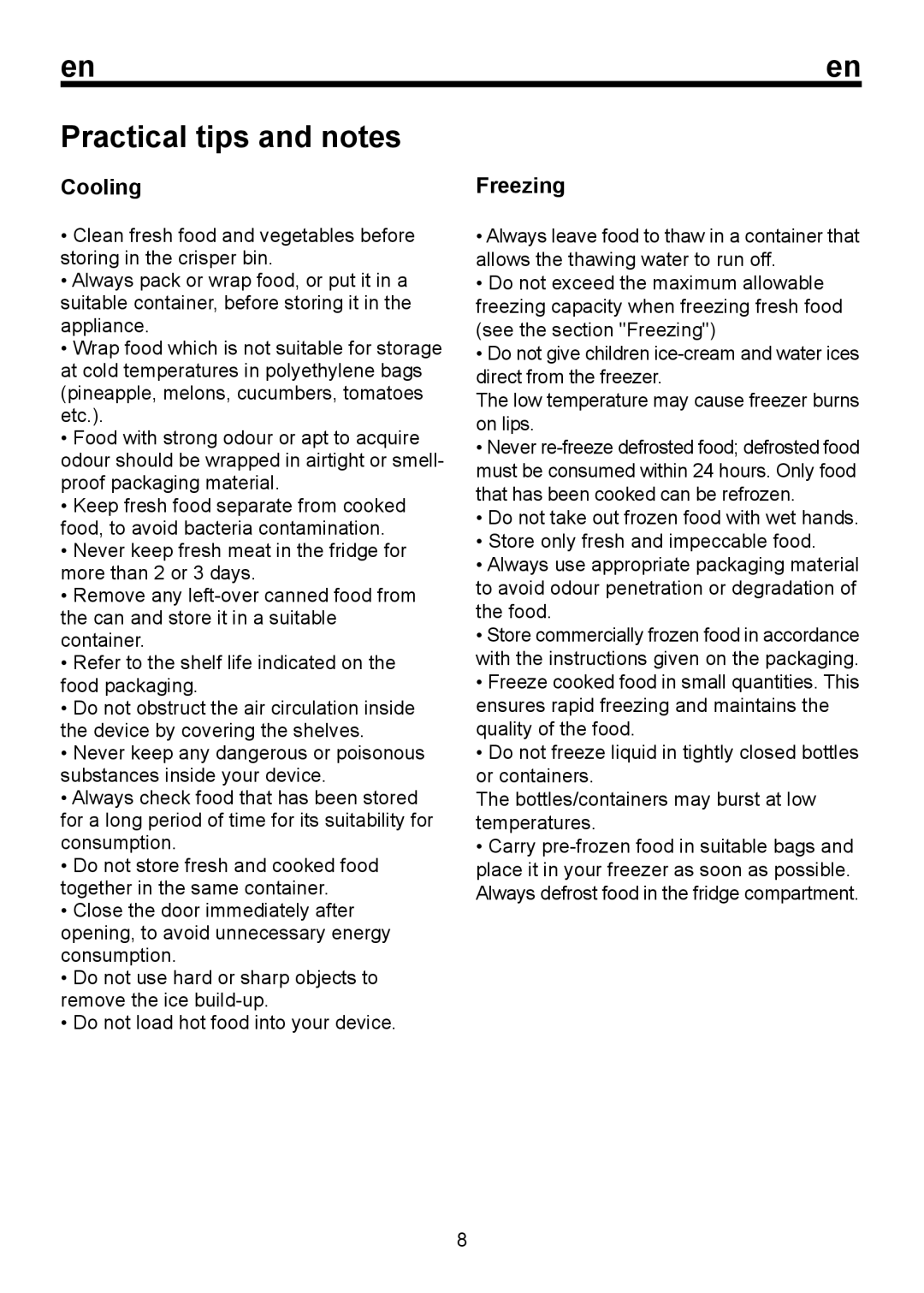en | en |
Practical tips and notes
Cooling
•Clean fresh food and vegetables before storing in the crisper bin.
•Always pack or wrap food, or put it in a suitable container, before storing it in the appliance.
•Wrap food which is not suitable for storage at cold temperatures in polyethylene bags (pineapple, melons, cucumbers, tomatoes etc.).
•Food with strong odour or apt to acquire odour should be wrapped in airtight or smell- proof packaging material.
•Keep fresh food separate from cooked food, to avoid bacteria contamination.
•Never keep fresh meat in the fridge for more than 2 or 3 days.
•Remove any
•Refer to the shelf life indicated on the
food packaging.
•Do not obstruct the air circulation inside the device by covering the shelves.
•Never keep any dangerous or poisonous substances inside your device.
•Always check food that has been stored for a long period of time for its suitability for consumption.
•Do not store fresh and cooked food together in the same container.
•Close the door immediately after opening, to avoid unnecessary energy consumption.
•Do not use hard or sharp objects to remove the ice
•Do not load hot food into your device.
Freezing
•Always leave food to thaw in a container that allows the thawing water to run off.
•Do not exceed the maximum allowable freezing capacity when freezing fresh food (see the section "Freezing")
•Do not give children
The low temperature may cause freezer burns on lips.
•Never
•Do not take out frozen food with wet hands.
•Store only fresh and impeccable food.
•Always use appropriate packaging material to avoid odour penetration or degradation of the food.
•Store commercially frozen food in accordance with the instructions given on the packaging.
•Freeze cooked food in small quantities. This ensures rapid freezing and maintains the quality of the food.
•Do not freeze liquid in tightly closed bottles or containers.
The bottles/containers may burst at low temperatures.
•Carry
8
